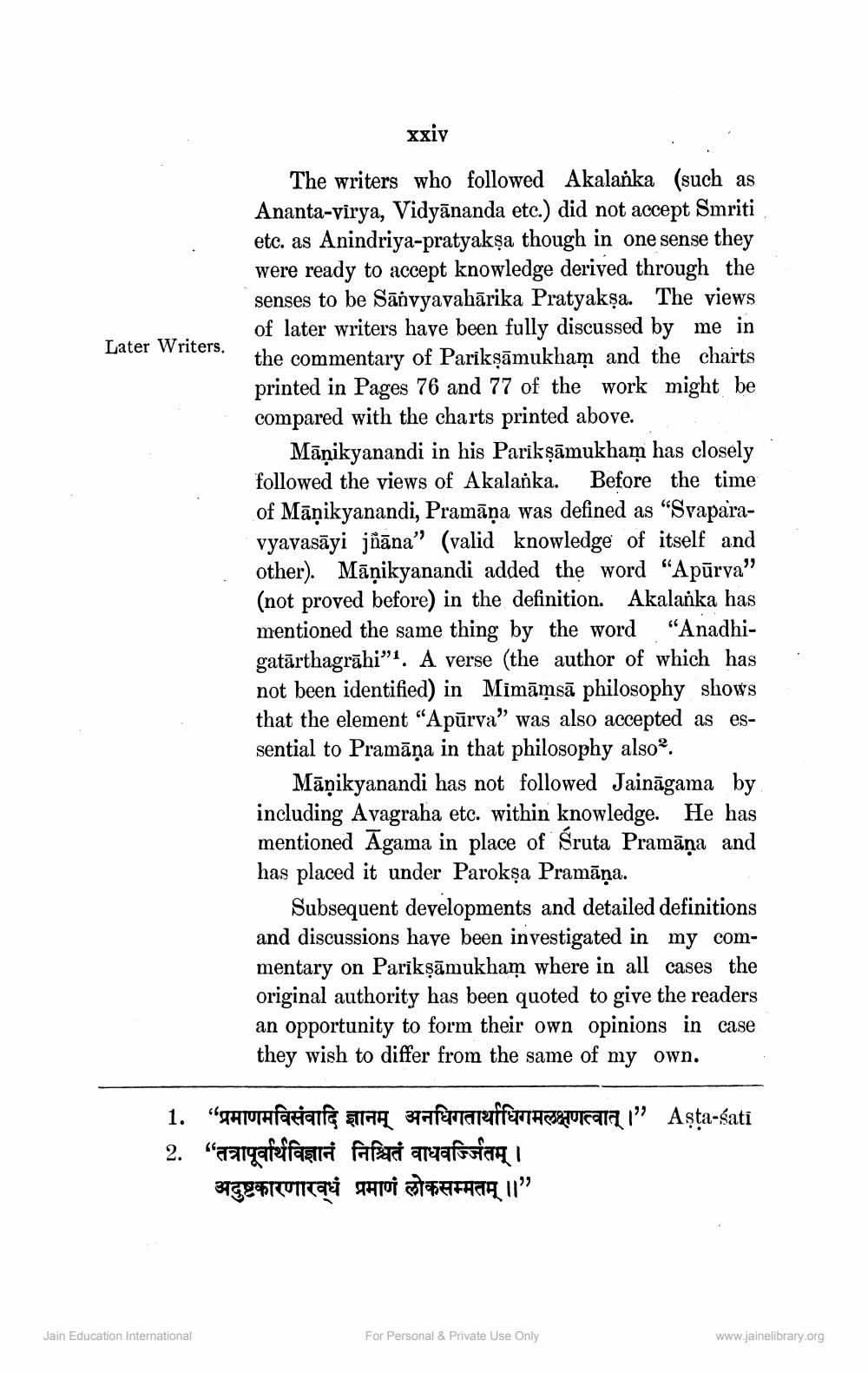________________
Later Writers.
xxiv
The writers who followed Akalanka (such as Ananta-virya, Vidyananda etc.) did not accept Smriti etc. as Anindriya-pratyakṣa though in one sense they were ready to accept knowledge derived through the senses to be Sanvyavahārika Pratyakṣa. The views of later writers have been fully discussed by me in the commentary of Parikṣāmukham and the charts printed in Pages 76 and 77 of the work might be compared with the charts printed above.
Jain Education International
Manikyanandi in his Parikṣāmukham has closely followed the views of Akalanka. Before the time of Manikyanandi, Pramāņa was defined as "Svaparavyavasayi jñāna" (valid knowledge of itself and other). Manikyanandi added the word "Apurva" (not proved before) in the definition. Akalaňka has mentioned the same thing by the word "Anadhigatārthagrāhi". A verse (the author of which has not been identified) in Mimamsa philosophy shows that the element "Apurva" was also accepted as essential to Pramāņa in that philosophy also2.
Māņikyanandi has not followed Jainagama by including Avagraha etc. within knowledge. He has mentioned Agama in place of Śruta Pramāņa and has placed it under Parokṣa Pramāņa.
Subsequent developments and detailed definitions and discussions have been investigated in my commentary on Parikṣāmukham where in all cases the original authority has been quoted to give the readers an opportunity to form their own opinions in case they wish to differ from the same of my own.
1. “ प्रमाणमविसंवादि ज्ञानम् अनधिगतार्थाधिगमलक्षणत्वात् ।” Asta-śati 2. “ तत्रापूर्वार्थविज्ञानं निश्चितं वाधवर्जितम् ।
अदुष्टकारणारव्धं प्रमाणं लोकसम्मतम् ॥”
For Personal & Private Use Only
www.jainelibrary.org




